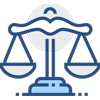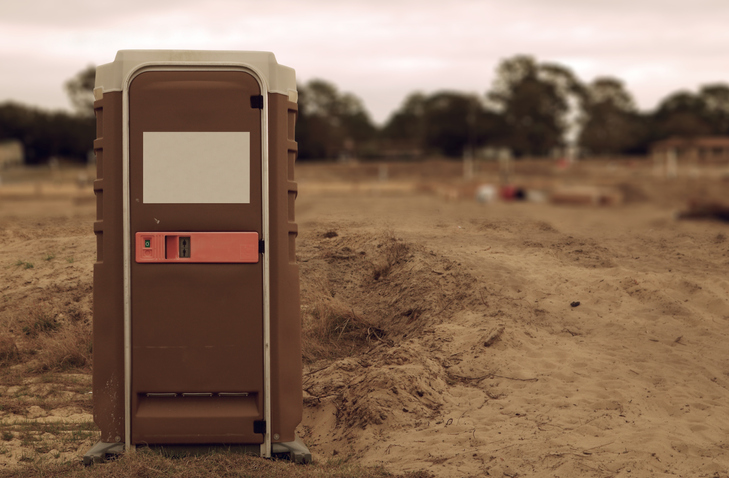
INFOGRAPHIC: Elements of a Winning Marketing Strategy
October 21, 2019
How to Rebrand to Rejuvenate Your Business
November 4, 2019When heavy rains are predicted, well-prepared communities in floodplains are ready. Levees, seawalls and embankments have been built. Sandbags are filled ahead of time. Families stock water and supplies.
The lesson is: Be prepared.
Just as heavy rain can erode a river’s banks, an economic recession can erode your business. Both are somewhat predictable. You can plan ahead.
What is a Recession?
The National Bureau of Economic Research (NBER) defines a recession as a significant decline in economic activity spread across the economy, lasting more than a few months, normally visible in real GDP (gross domestic product), real income, employment, industrial production and wholesale-retail sales.
Business activity slows. Consumers and customers tend to cut back on spending.
Effects of a Recession
Over time, the disadvantages of a recession can drain momentum from your business in different ways:
- Reduced cash flow
If customers cut back and aren’t spending money as before, you aren’t making money as before.
- Reduced opportunities
As a result of a recession, a construction company may be forced to scale back its projects. A planned public event may become a one-day event instead of a two-day event. A family planning to hold a big outdoor party may just cancel. Those opportunities that may have been new jobs or new clients for you just simply disappear.
- Reduced financing
A recession may also discourage banks and other lenders from making loans, so it may become harder to secure financing for your business plans.
- Reduced ability to market your company
It’s a vicious circle. You want to increase business because money has gotten tighter, but you may have to reduce your marketing budget to save money.
There also may be advantages to a recession for the small business owner:
- Your competition is working under the same conditions you are
If they are not as well-prepared as you to ride out the recession, the effects can give you an advantage while the recession lasts, and then you will have an economic head start going into the recovery.
- Unemployment goes up
It may be easier to hire workers, which is especially critical for portable sanitation businesses.
- The inflation rate drops
Although, the current rate of inflation is already low.
These may be small advantages, but they can help you focus on staying optimistic through a downturn.
We May Be Entering a Recession… Or Not.
Many leading economists are taking a cautious approach, warning that there are signs of a possible recession. If it does happen, some say it will begin late in 2020, while others predict 2021. Other opinions are plentiful.
It might seem hard to believe that economic problems in Japan or politics in Great Britain can affect your portable sanitation business, but that’s the reality of global economics. Worldwide factors that have been mentioned as putting pressure on the U.S. economy include the U.S. – China trade dispute, “Brexit” and slowing global growth.
Within our country, financial experts look for indications that our economy might be going south. One of the most talked-about is the inverted yield curve between two- and ten-year U.S. Treasury bonds. This isn’t an economics lesson, so we can just explain that when the interest rates on the short-term bonds are higher than the interest rates on the long-term bonds (it’s usually vice-versa), it’s an inversion that has happened before every recession since 1950.
To predict when a recession might happen, economists look at numerous statistics.
CNBC notes a number of statistical red flags. The GDP (gross domestic product) is slowing. Corporate profits are down. U.S. manufacturing growth has slowed to the lowest level in almost 10 years. Business spending dropped more than five percent in the second quarter (the worst since 2015), indicating that businesses are uncertain about making future investments.
In September, the Wall Street Journal reported that slow household spending and weak business investment are “sapping U.S. economic momentum.”
Every recession is unique. Nevertheless, let’s look at recession from a worst-case scenario. Let’s be prepared.
Get the JohnTalk “ALL-ACCESS PASS” & become a member for FREE!
Benefits Include: Subscription to JohnTalk Digital & Print Newsletters • JohnTalk Vault In-Depth Content • Full Access to the JohnTalk Classifieds & Ask a PRO Forum
Preparations for a Recession
Like the communities facing bad weather, the goal of recession preparation is to weather the storm by limiting potential long-term damage. Under some circumstances, a small business can even thrive during a recession. And some recommendations just make good business sense, whatever the economic conditions that exist.
SCORE and many other financial advisors have very similar approaches to surviving a recession that can help protect your small business. These are some of the most commonly suggested strategies:
1. Broaden Your Customer Base
2. Increase Your Cash Reserves
3. Cut Costs
4. Diversify Your Portable Sanitation Products and Services
5. Diversify with Other Products and Services
6. Expand Your Geographic Market
7. Renew Your Marketing Efforts
1. Broaden Your Customer Base
This suggestion sounds like another way of saying “get more customers,” but there’s more to it than that. Yes, it means try to win more customers. You’re always on the lookout for business. More importantly, it means don’t rely on just a few big customers, or one type of customer, for most of your revenue.
For example, if a large percentage of your business comes from a contract with a large construction firm, what happens if home building projects fall off because people are too concerned about the economy to invest in new homes?
Or, if many of your events are parties such as birthdays and graduations, what happens when people downsize their plans?
Look beyond your “bread and butter.” If you’re concentrating on one industry, consider adding several smaller customers. If you’ve never entered a certain market, such as agriculture or public events, see if serving these new markets is a practical option.
This is risk management. You are spreading the risk of recession so that no one customer or industry can pull you down.
2. Increase Your Cash Reserves
You might call your business cash reserves your “emergency fund” or “rainy day fund,” but “recession fund” might be more appropriate in the current situation. It is generally recommended that you have cash on hand that equals three to six months of operating expenses (salaries, fuel, dumping fees, supplies, etc.).
The best time to build cash reserves is when you don’t need it.
In anticipation of a recession, SCORE suggests taking stock of your cash flow. First, determine how much money you’ve been spending. Check your monthly cash flow report for cash received (from sales) and cash spent (expenses). You can make two estimates, the “net burn rate” and “gross burn rate.”
The net burn rate is monthly sales minus monthly expenses. For example, $50,000 in sales minus $30,000 in expenses equals a net burn of $20,000.
The gross burn rate is simply your monthly expenses. In the above example, your gross burn is $30,000 because that is the total of your expenses. You’re assuming you have no sales. Gross burn is a more conservative estimate.
Next, estimate how much cash you plan to use. Look at your monthly budget or financial forecast for the monthly cash flow projections for the next 12 to 15 months. You can usually make a fairly accurate estimate because expenses are relatively fixed and thus more predictable than revenue.
These key indicators can guide you in making well-planned savings decisions.
Your cash reserve strategy is important to the financial health of your company. When times are good and your business is performing well, but you’re having problems building your emergency fund, you may need to re-evaluate your monthly budget and/or change your business model. This is a red flag that your business may be more vulnerable during a recession. SCORE recommends talking to a financial planner.
SCORE also recommends that your recession fund be held in a liquid, FDIC-insured cash savings account where your cash is more easily accessible.
Finally, when you have maxed your recession fund, don’t be tempted to splurge, especially if a recession is looming. It may surprising to know that many small businesses fail because they are overcapitalized. With large cash reserves, they become less conservative about spending and overinvest in projects they can’t sustain over the long run.
3. Cut Costs
Run a lean operation. Take inventory of your expenses and consider if and where you can cut costs without reducing the quality of your services. Every little bit helps. Saving on office supplies, for example.
As you add customers and expand, you may want to invest in routing software, which can help you save money by mapping more efficient routes, thus saving fuel and time.
Consider cutting your personal financial expenses. There are many ways to reduce your discretionary income, from packing a lunch instead of eating fast food to “cutting the cord” on your cable TV. Paying off your credit card every month, refinancing or consolidating debt, or switching to a less expensive insurance plan might be other options.
4. Diversify Your Portable Sanitation Products
If your inventory is all or mostly standard units, this could be an area of opportunity to help gain new customers or expand the business of current clients. Trailers, luxury units and wheelchair-accessible units are increasingly in demand for events like weddings, business conferences and high-end public events, such as food festivals and art shows. ADA-compliant units may be contractually required for certain jobs.
Other specialized units include:
- Portable showers
- Self-contained mini flushing toilet systems for use in temporary settings
- Portable standalone urinals
- City mains units offering sewer and services connectivity
- Units for high-rise construction sites that are designed to be lifted
- GAP (Good Agricultural Practices) compliant units
Sinks and handwashing stations comprise a separate, expandable product category that can benefit your growth, especially if you are currently limiting your services to hand sanitation dispensers or stations. In addition to the many models of standard one, two and four-station sinks, specialized models include:
- Heated sinks
- Direct connect to freshwater source
- Sinks with wash basins that meet HSE (health, safety and environment) requirements
Still, other products serve specialized needs, such as:
- Holding tanks
- Lighting solutions for units and sinks for evening use
5. Diversify with Other Products and Services
One of the best ways to avoid being hit by a downturn is to have other services you can fall back on. Many PROs today are actively working in many areas besides portable toilet rental. Here are some examples:
- Septic waste management – This is a companion business to the PRO industry and offers several built-in advantages. Since it also involves waste management, you and your staff have a head start in experience, and you will have much of the equipment. As a hedge against recession, septic is ideal because your startup costs are low.
- Equipment rental services – PROs are often also involved in rental services. An easy way to enter the rental business is to focus on equipment you may already have experience with because it involves waste management or outdoor jobs, such as dumpsters, barricades and generators.
- Fencing rental – Many job sites and events require temporary fencing. As a PRO, you may already have a flatbed that can be used to transport fencing. And you probably have experience setting up your own fencing.
There is an important consideration/warning for diversifying your portable sanitation and other products in anticipation of a recession: diversifying requires you to invest money. This strategy is opposite to other strategies that recommend saving money and cutting expenses.
While diversifying can strengthen your business, if you are new to portable sanitation, it may be too soon for expansion plans. It may be best to use other strategies to weather a recession and adhere to the schedule you have set in your business plan for future growth.
6. Expand Your Geographic Market
For greater opportunity, cast a wider geographic net.
By expanding your service area, you may be able to tap into completely new job markets, whether in towns and cities or more remote areas that are underserved by competitors. The majority of new business you earn is likely to come from new customers. This is another way to broaden your customer base.
This strategy also has its limitations. The most significant are added costs and more time out of your day. Because you are traveling greater distances, your fuel costs will increase, and your vehicle or vehicles will undergo greater wear and tear. Your route will take longer, so you will have to commit to the extra time. You may also face new competitors who are already established in that area.
If your new service area continues to enjoy success, you may eventually have to start another route or hire more help. With these considerations in mind, this may be another suggestion that is best considered in coordination with your business plan projections for growth.
7. Renew Your Marketing Efforts
A recession is the time to make a greater commitment to marketing your services, not cutting back. It doesn’t necessarily mean spending more money. With a little effort, you can take advantage of many easily available marketing opportunities to generate leads.
- Build word-of-mouth references
Take the time to meet with your current customers if you haven’t done so lately. Ask them to keep you in mind for new job opportunities. Whenever you’re in the public eye, such as events, conduct yourself in your most professional manner. Keep your vehicles and units looking in top shape.
- Stay involved locally
Step up your attendance and involvement in local civic organizations you belong to, particularly your Chamber of Commerce. Consider donating or continue to donate your portable sanitation services for non-profit events.
- Stay involved in social media
Update your business page on Facebook, look for advice and tips on private Facebook groups such as Portable Toilet Network (PTN), promote your business on LinkedIn, spread the latest news about your business on Twitter.
- Try cold calling
As you network, you will often pick up leads with little to go on except a name and phone number. Don’t be afraid to just pick up the phone and let these potential customers know who you are. Even if you’re not successful at getting business right away, you’ve planted the seed.
- Make sure business decals with your phone number and web address are on every unit!
Stay Optimistic
Recessions can have different degrees of severity. Recent recessions have ranged from six to eighteen months. Many economists today are currently predicting a recession – if there is one – will be relatively mild because the U.S. economy is on solid financial ground at this time.
Even should a recession happen, the lean times don’t last. Foresight and good preparation is a confidence-builder.
Looking to Take Your Portable Restroom Business to the NEXT LEVEL? Download our FREE Guide: “Your Guide to Operating A Portable Restroom Business.”
Thinking About GETTING INTO the Portable Restroom Industry? Download our FREE Guide: “Your Guide to Starting A Portable Restroom Business.”





